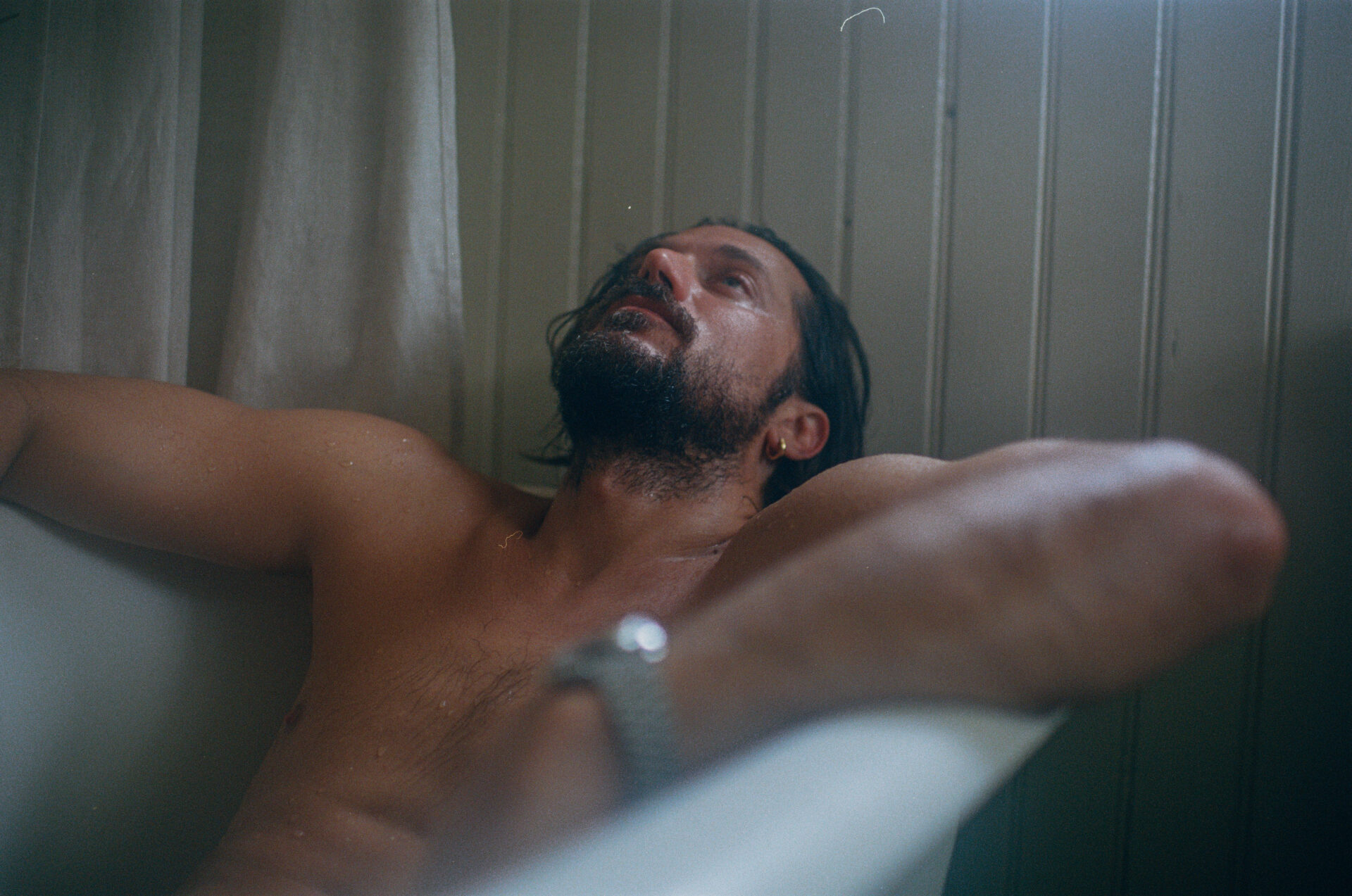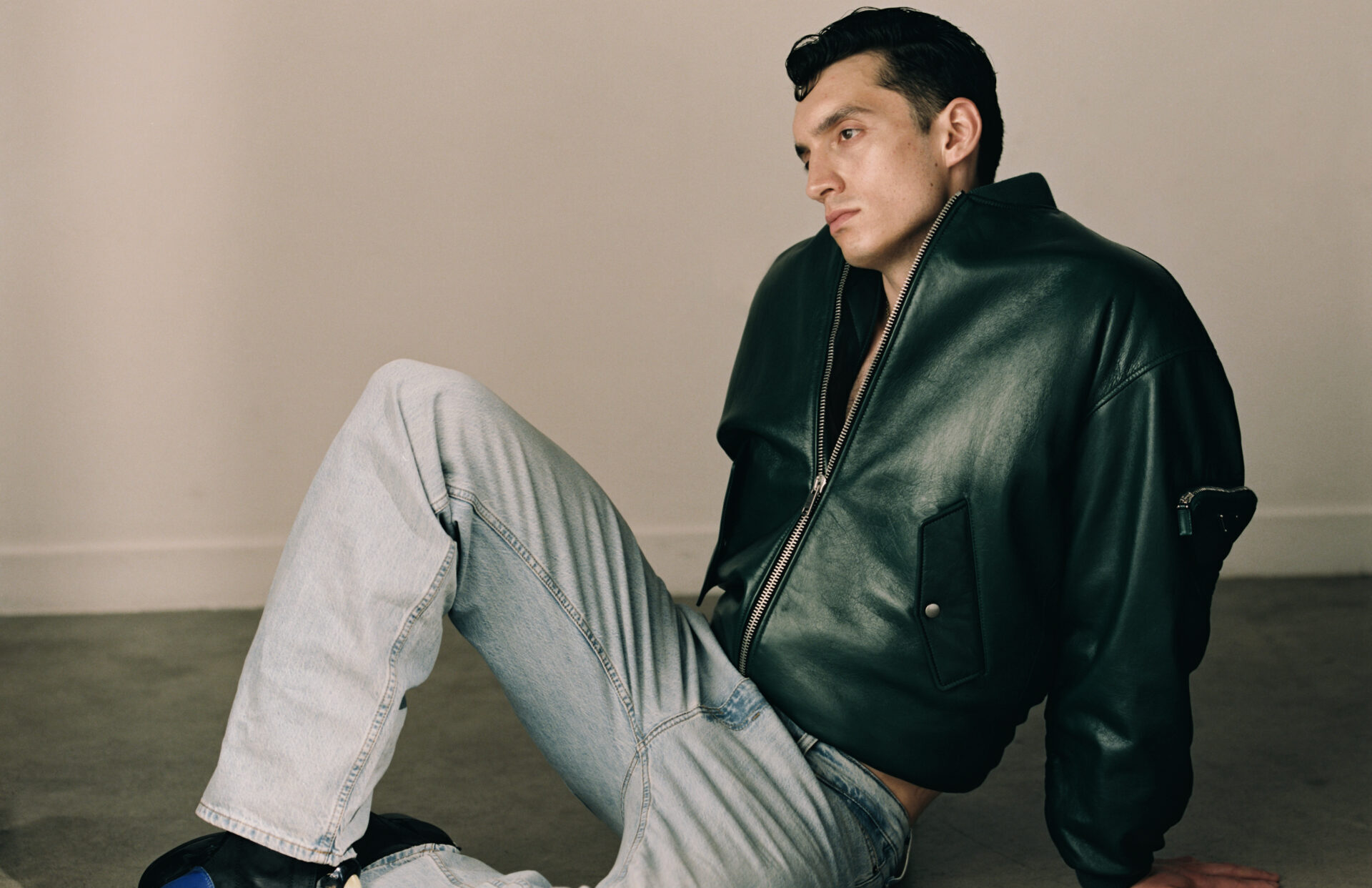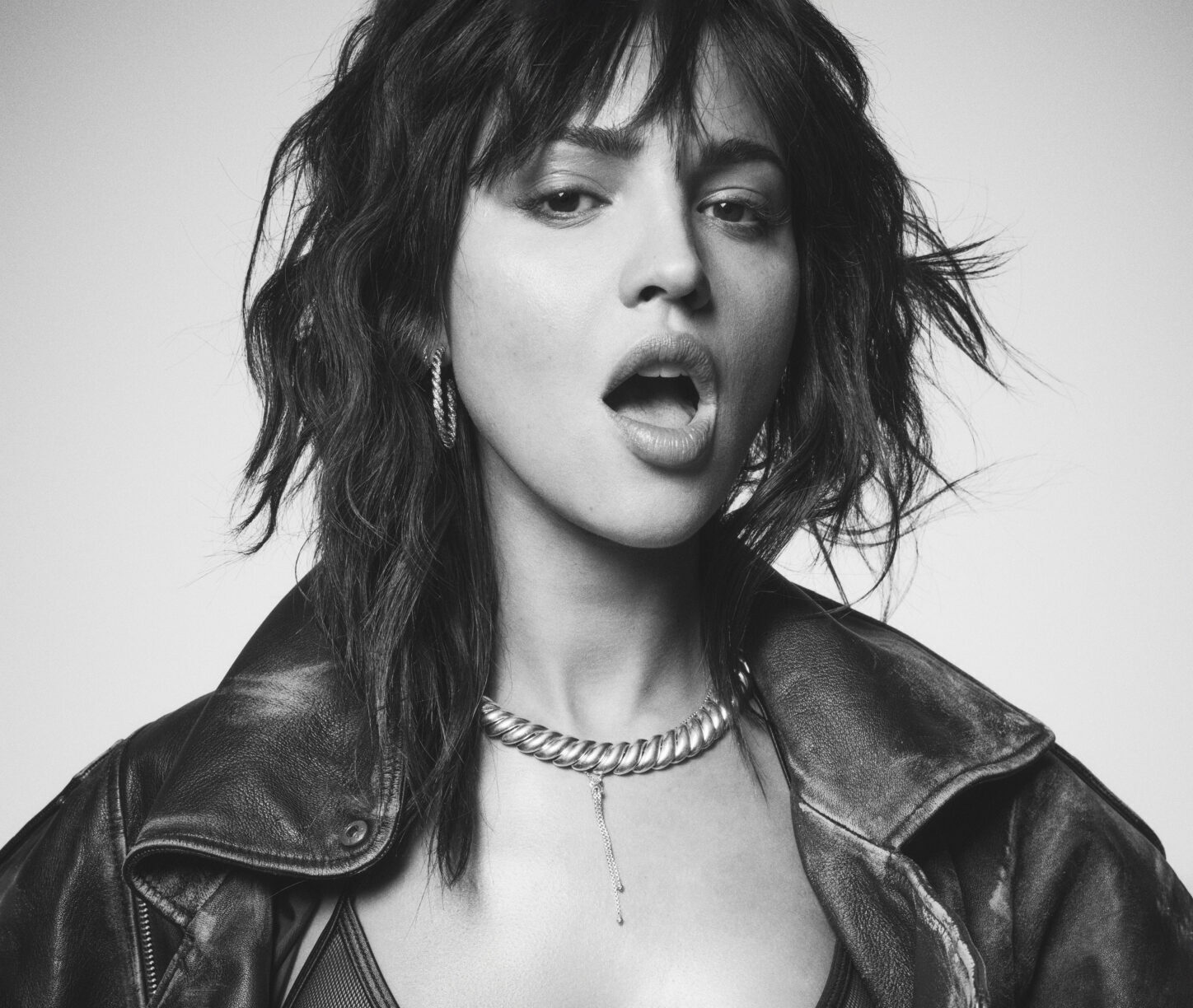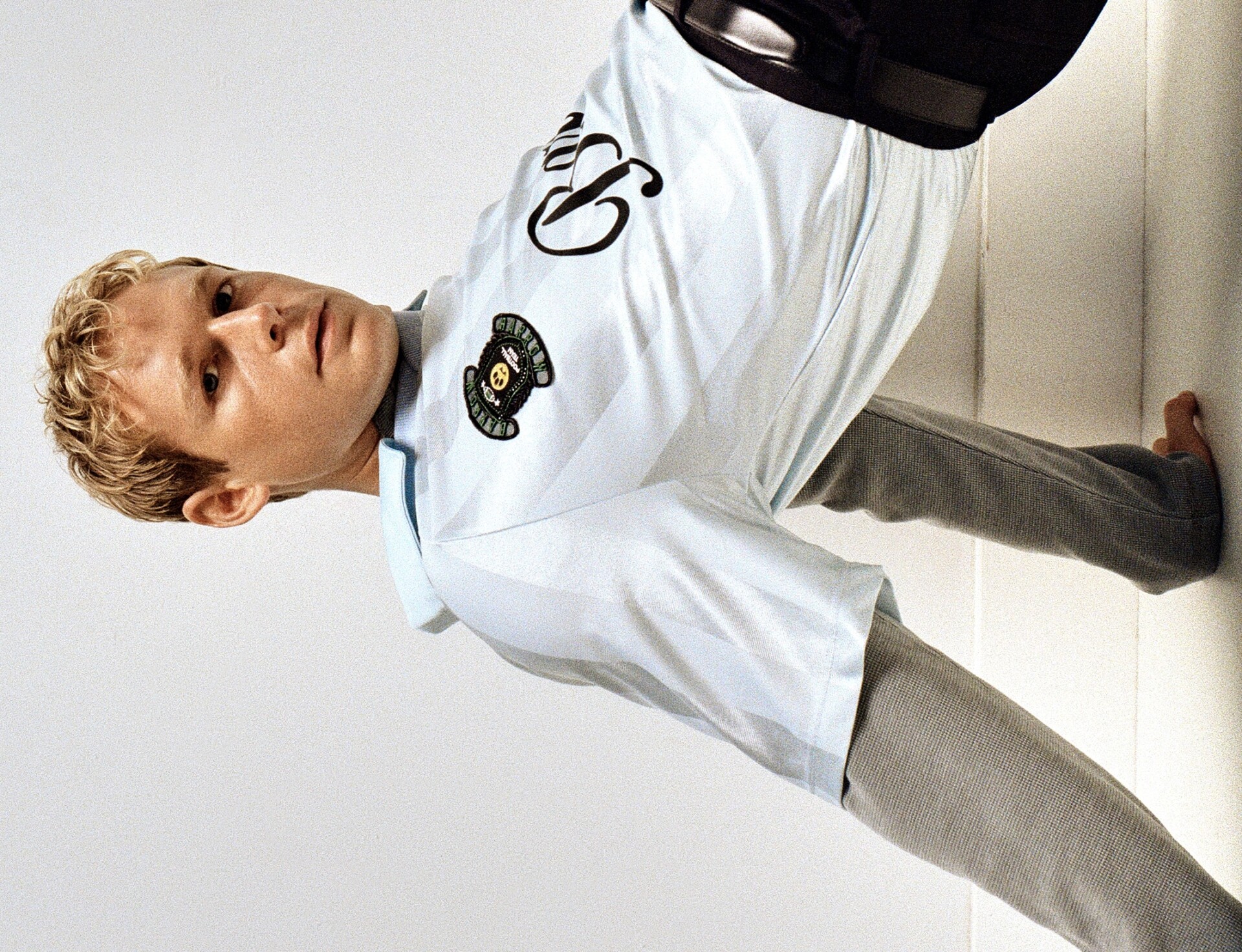Seven finalists, thousands of auditions – Simon Cowell’s search for the UK’s next big boyband ends with December 10.
WORDS Olive Walton
Interview taken from IMAGINE Magazine Issue Three. Pre-order the SS26 issue here.
Seven voices, one band: the lads behind December 10 are arguably destined for success, with the backing of music mogul Simon Cowell. Thrust into the spotlight through his self-titled Netflix show, Simon Cowell: The Next Act, the band has enjoyed a start aspiring musicians could only dream of. Signed to EMI Records, the boys have released their first single, Run My Way, today, 30 January.
The six-part docuseries, released on December 10, 2025, called on boys to audition for Cowell and his industry peers at open calls held in London, Dublin and Liverpool, in search of Simon’s next boyband. From thousands of performances, 16 aspiring musicians were selected to continue on to Miami for an intensive training camp, where they learned to harmonise and work together as a group while Cowell decided who had what it takes to make the final cut.
Placing chemistry between potential band members on equal footing with vocal ability, Cowell once again demonstrates his seasoned eye for talent. Having previously put together chart-dominating acts including One Direction and Little Mix, December 10 – nicknamed D10 by early fans – are another testament to the music mogul’s instincts. If their sold out shows are any indication, Simon Cowell’s track record in shaping record-breaking groups continues to speak for itself. Speaking to December 10 at their Imagine Magazine cover shoot – Hendrik, 19, from Birmingham; Josh, 17, from Lancashire; Cruz, 19, from West London; John, 17, from Kent; Danny, 17, from Chorley; Nicolas, 17, originally from Slough, and now based in Lisbon; and Seán, 19, from Dublin – we explore how they’ve grown together as a band, had to double their show dates after selling out in less than a minute (all before releasing any music) and what lies ahead.
CRUZ
OLIVE: How did you choose your audition song?
CRUZ: I had to show the people on the panel that I can perform and that I’m a good entertainer. So I went with Lil Boo Thang by Paul Russell, and I feel like it showed that.
OLIVE: You come from a musical theatre background, how did switching from theatre to pop performance feel?
CRUZ: When I played Mini Michael Jackson, I was in a group, Jackson 5, so it kind of feels similar, and I love entertaining – I think that’s also the role I play in this group – so I feel it hasn’t really changed anything for me, to be honest, ’cause I feel like I’ve always been part of a group.
OLIVE: You took the boys back to your family home during the show – what did that moment mean to you?
CRUZ: I feel like it meant that there weren’t just people I’m in a band with, they are actually my friends, and they will be my friends for life. Taking them all to my home felt like it helped create our brotherhood. We are a family.
OLIVE: What do you feel you bring to the band that is unique?
CRUZ: I feel I bring good vibes to the band and I keep the positive energy going.
OLIVE: I hear you’re a good football player, can you tell me about that?
CRUZ: I used to play semi pro, under 23s. I had trials at Chelsea and Arsenal. I was decent back in the day, but I felt like I was better at singing so decided to focus on that.
DANNY
OLIVE: You and Josh are best friends. What was it like finding out you’d both be in the band together?
DANNY: It kind of overwhelmed me initially, but at the same time it was a rush of adrenaline and excitement from my bones that I knew that I was going to be spending my dream career with my best friend.
OLIVE: Did that friendship help or challenge you once the cameras were rolling?
DANNY: I think it helped us because throughout this whole process we both had someone to rely on.
OLIVE: What role do you feel you play?
DANNY: “Best body” – only messin’!!! I bring a lot of energy to the band and I just checked with Cruz and he said exactly the same thing.
OLIVE: What’s been the biggest personal adjustment since becoming part of the group?
DANNY: I think being in the band has helped my self-confidence.
HENDRIK
OLIVE: I’ve heard that you’re really into rugby, how does the team aspect of sport lend itself to being in the band?
HENDRIK: I’m very grateful that I have been a rugby player my whole life. It made me grow as the person I am today. It’s all about respect, loyalty and working together as a team to get that win and at the end of the day it’s all about love, brotherly love. So I’ve really brought that into the band. It is like my rugby friends, they are friends for life, I feel the same with the lads in the band.
OLIVE: As a musician, what do you bring to the band?
HENDRIK: When we’re in rehearsals, I have a good ear to hear when there’s too many instruments playing, or if it doesn’t sound right. That’s what helps us as a band, I help get the final sound together when we are playing live.
OLIVE: Paint me a picture of who you were before joining the band?
HENDRIK: I was working at Nando’s, going to the gym once a day, seeing mates here and there and posting music on TikTok. I was also doing a fair few local gigs.
OLIVE: You’ve been dubbed the big brother of the group. How do you feel about that?
HENDRIK: I wouldn’t say I’m the big brother, I just tell the truth when the lads may not want to really hear it. It’s hard to hear the truth sometimes. And I think that’s what they respect about me.
JOHN
OLIVE: What have you discovered about yourself since joining the band?
JOHN: I’ve learned to trust in myself and be more confident. Before I was in the band I knew I could sing and play instruments, but I lacked a bit of confidence in my abilities. The whole process has been really validating to me. I have had an external view that’s told me that I am good and I can do this, so it’s been a big confidence boost.
OLIVE: How do you approach performing now, compared to before the show?
JOHN: I’ve performed on my own before, and in groups like choirs. When you’re working in a group like that, you have to listen and think about how voices balance, and that’s something I’ve definitely carried with me into performing with this band.
OLIVE: How many instruments do you play?
JOHN: I play clarinet, one, piano, two. I think that’s officially it, but I do want to try to learn more as time goes on.
OLIVE: I understand you have a music scholarship. How do you balance being in the band with high academic standards?
JOHN: Whenever I can be in school, I’m there, and that’s a completely personal choice. When I came home from Miami and Nashville, my parents thought I would take the day off and I slept for 2 or 3 hours and then went into school. I think that’s just the type of person I am. When I’m in a school environment, I’m around my friends so I want to be there. It grounds me again.
JOSH
OLIVE: Paint me a picture of who you were before this journey to joining the band began?
JOSH: Before the band I was at a music college. I play drums and guitar and did some gigs in my local town.
OLIVE: How and when did you first discover that you could sing?
JOSH: I was in my room, and I was 10. I was actually watching The Greatest Showman and then I sang A Million Dreams – I was by myself but it was then that I realised I could sing.
OLIVE: The moment Simon told you to shave your hair was unforgettable. What was going through your mind?
JOSH: I didn’t feel he told me to do it – more that he said it was ok if I did. I had wanted to shave my head anyway – so I did it.
OLIVE: Did you have an inkling you were going to make it to the band?
JOSH: I had a good feeling about it from the first audition, and hoped in my bones that the feeling was right… and it was.
NICOLAS
OLIVE: Were there any words from Simon that really stuck with you?
NICOLAS: On the show, he said to me after my audition “Thank you for bringing you,” and that just stuck with me, because it just showed the importance of authenticity throughout the whole music industry in general, and just how important it is to stay true to yourself.
OLIVE: How has being part of a band changed you?
NICOLAS: It has made me more outgoing and helped me to work on my communication skills.
OLIVE: Was there a challenge during the show that pushed you outside your comfort zone?
NICOLAS: I am very shy. So I’d say, going outside my comfort zone and just talking to people, getting to know people and making new connections.
OLIVE: Were there any moments during the process when you truly felt, ‘I belong here’?
NICOLAS: Probably when as a band we went on our first trip together without being part of a show, and we went to Thorpe Park. I remember thinking ‘Oh wow, I really am in a band with six of my best friends,’ and I remember thinking in that moment that couldn’t be happier to be where I am right now.
SEÁN
OLIVE: What first got you into music?
SEÁN: I was just singing music around my house all the time and I started looking at pop stars online and thought ‘I really want to do that when I’m older’. Then my parents put me into a choir when I was 7 years old and that’s where I started learning how to sing, along with doing singing lessons.
OLIVE: How has being part of the band challenged you? And what’s your favourite part?
SEÁN: I have sung in many choirs so I am used to singing with others. I wouldn’t call it a challenge but it is a new experience just to be with six other personalities and working together, learning how best for us all to work together. It’s also just really fun. We’re just seven lads having a lot of fun which is our jobs – we are very lucky!
OLIVE: What’s the dream, as a band?
SEÁN: The dream for the band is to just have fun and to achieve success. I think having a loving fan base is success for me.
Sitting down with December 10 at the IMAGINE Magazine Cover Shoot:
What’s your group chat name?
HENDRIK: December 10.
SÉAN: Our group chat name is December 10 with the blushy emoji with the hearts around the face… but I swear it was different?
JOSH: But we maybe won’t talk about that…
Who controls the aux when you’re all in the car?
DANNY: It’s whoever’s in the front seat.
HENDRIK: I’d say Cruz.
SÉAN: Cruz is the most opinionated about the aux.
Who’s the most unserious?
ALL: Danny!
DANNY: I can be when I try.
Who’s always late?
ALL: Séan!
Who takes the longest to get ready?
ALL: Séan!
SÉAN: Or Danny?
JOSH: It’s obviously Séan.
SÉAN: I don’t take long actually getting ready, I just wake up and go on my phone.
HENDRIK: Séan, do you know that makes it ten times worse when we’re waiting for you downstairs and you’re just on your phone.
We’re shooting for IMAGINE Magazine today, how do you find getting your hair and makeup done?
SÉAN: I love it. Makes me feel really beautiful.
JOSH: Sometimes I don’t really like getting makeup on.
JOHN: I don’t know if you guys know what I’m talking about, but you know they put these ice things on you and I really like that because it wakes up my face.
JOSH: I say no to them.
HENDRIK: Can I have your time on the ice things then? They are unbelievable.
CRUZ: I love getting the nails done. I felt like a really big girly pop today, I loved it. I felt like I was in my element.
To talk about the show, during filming you were away for long periods of time, what were you telling your friends and family when you were disappearing?
DANNY: I said I went to an athletics college in London. That was my life, so when we were going to America, I was like ‘Oh yeah, I’m competing in America’. Everyone thought I was going to be a pro athlete.
SÉAN: Yeah, but he wasn’t that good.
JOSH: I just kept saying I went to weddings.
CRUZ: I said I was playing football.
NICOLAS: I wish I had a creative answer. I was just saying that I kept going to auditions, so I felt like people thought I was terrible because it was just one audition after the other.
What was the moment during this whole process where you had that pinch-me moment of realising ‘this is really real’?
SÉAN: The first day we started recording the songs, including Run My Way, in London, was a real pinch of moment. Something about making your own song just felt really killer for me.
NICOLAS: For me it was probably going to Nashville. It was the first big trip that we did after getting in the band. I feel like we made some funny memories that will last a long time.
HENDRIK: I second that. It was actually watching the show back and watching what we’ve done. That was one of the moments I’m just like ‘I’ve been doing that, that’s me’.
Who dropped the cookie on the floor?
HENDRIK: Danny. He didn’t even share half of it with me.
SÉAN: He didn’t even drop it, he just spat it out.
DANNY: Can I just clarify what happened? For the record, a lot of people seem to think I just put that cookie in my mouth and spat it out. That looks like what was happening. But I put it in my mouth and it went down the wrong pipe when I swallowed it, so then it came back up and I coughed it everywhere and then Séan had to be dramatic and pretend to be sick – but it was a nice cookie.
What was it like meeting Simon for the first time?
DANNY: People have only really seen him on TV, and on TV he’s a very different person. He comes across as this big, bad, menace, who’s a really judgmental guy. But then we met him in real life and he’s literally just like a lovely, humble guy.
HENDRIK: He’s sweet.
JOHN: I think he cares about us a lot and the main thing is he gives us so much good advice.
Why do you think he chose you?
CRUZ: I think he chose us because, I feel like we didn’t really think this at first, but we go so well together in pictures, we just blend together perfectly. I feel like I wouldn’t have it any other way with anyone else in this position but us because I appreciate all these people.
SÉAN: I think it’s the chemistry and the atmosphere because being in a group, it’s not just about one single person, you have to get on with everybody and I think we all just kind of clicked with each other throughout the process.
JOSH: I think he’s seen the love between us all. It’s all about the bond.
SÉAN: There’s a lot of potential.
What would you all be doing if you weren’t in the band?
HENDRIK: I’d probably be cooking chicken right now and trying to pursue a music career somewhere.
JOHN: I think I’d be getting uni offers right now.
JOSH: I’d probably do a trade or something hands on.
NICOLAS: I’d probably finish school and then maybe go to culinary school.
What are the group dynamics like now that you’ve spent more time together?
JOSH: Banter.
HENDRIK: Chaotic.
JOSH: They’re two good words to sum us up. Banter and chaotic.
HENDRIK: And a lot of love.
SÉAN: We’re not trying to take it too seriously, but we know when we need to lock in – that’s important.
What’s the most unexpected part of the job?
CRUZ: Waking up and seeing Séan’s beautiful eyes every day 🙂
NICOLAS: The amount of content that we do. I’ve only just taken into consideration how much our fans communicate with us through social media.
SÉAN: Seeing how people have reacted to the show and how positive everything’s been. Say you like a TikTok, or make a comment and people go ‘Oh my God, this is crazy,’ or some of them are even like ‘I’m gonna put this on my wall’. It’s crazy.
JOHN: Also all the poster signing we’ve had to do, I just never thought that that was something we’d have to do, but it’s fun.
HENDRIK: And your signature’s just “John” with a smile.
JOSH: Every single time he does his signature you can just picture John smiling.
What’s something you found out about someone in the group, as you got to know them better, that really surprised you?
NICOLAS: Séan’s an amazing cook.
DANNY: Completely disagree with that.
SÉAN: What do you mean?
DANNY: Throughout the show, I think Nicolas is conveyed as very to himself, quiet personality, and I think that if there’s a definition of coming out of your shell, it’s Nicolas.
HENDRIK: Yeah, I back that, Nicolas surprised me massively. His humour was actually quite funny.
How does collaboration work in the group?
HENDRIK: With performing, we have different aspects we give to the band. We all play an instrument. I mean, the one person who doesn’t (Cruz) can dance like no one else is watching. I feel like it helps us as a band massively when we eventually go on stage because one can pick up a guitar, one can pick up a bass, Josh can be on drums, John on the clarinet or the piano. I think it’s amazing how we can all add that to the group as well as that we can all sing.
DANNY: Very well said, Hendrik.
The new single, Run My Way, drops today. What was the process behind making it?
JOSH: We made that at Metropolis Studios in London with Savan Kotecha and Rami Yacoub.
CRUZ: I think that was my most challenging studio session as well because I felt like it was such a different song to what I’ve sung before, but it was weird because I also loved it at the same time, it really suited me.
JOSH: It’s such an infectious, upbeat song. We were all dancing when we were recording it. The first time we heard it was sort of a magical moment for us. We were just like, we can make this song our own and do great things with it.
Do you ever get in the booth together?
JOSH: Yeah, for the song actually we got in for the gang vocals and we were all sat in this room and we were just chanting Run My Way.
SÉAN: They got the mic and set it up in the middle of the room and got everybody in the room to chant Run My Way so when you hear it in the chorus, that’s what you hear.
You sold out your first release of shows and had to add more, what does that feel like to you guys?
NICOLAS: It’s pretty insane to think about.
DANNY: It was completely unexpected for us to sell out within the time that we did. Literally every time we dropped tickets, we sold out in like under a minute, which we’re beyond grateful for.
JOSH: It is actually insane. We got shown so much love. We don’t even have a song out yet and we’re getting shown love. We just appreciate everyone.
What city are you most excited to play?
SÉAN: I think Dublin is going to be the one for me.
JOSH: I think Manchester is going to be the most exciting for me because that’s where I’ve grown up.
NICOLAS: I think Dublin for me because of my Irish blood and stuff like that.
Is that right, Nicholas?
NICOLAS: No… but because it’ll be my first time in Dublin.
HENDRIK: Birmingham. One hundred percent Birmingham because all my family’s going to be there, so I can’t wait to see everyone.
CRUZ: I’d probably say Glasgow because I’m a quarter Scottish, which hardly anyone knows about me, and I’ve got loads of family there.
DANNY: I’m going to go with Séan and say Dublin actually, because obviously Manchester’s close to home which is going to be really cool, but the music scene in Dublin is just on another level so I’m really excited for that.
JOHN: I’d probably say London because most people close to me will be there.
Any final words?
JOHN: I want to say we’re very grateful for this interview today and also for the whole shoot, it was loads of fun.
JOSH: Yes thank you so much.
HENDRIK: And Run My Way is out today, go and check it out.



